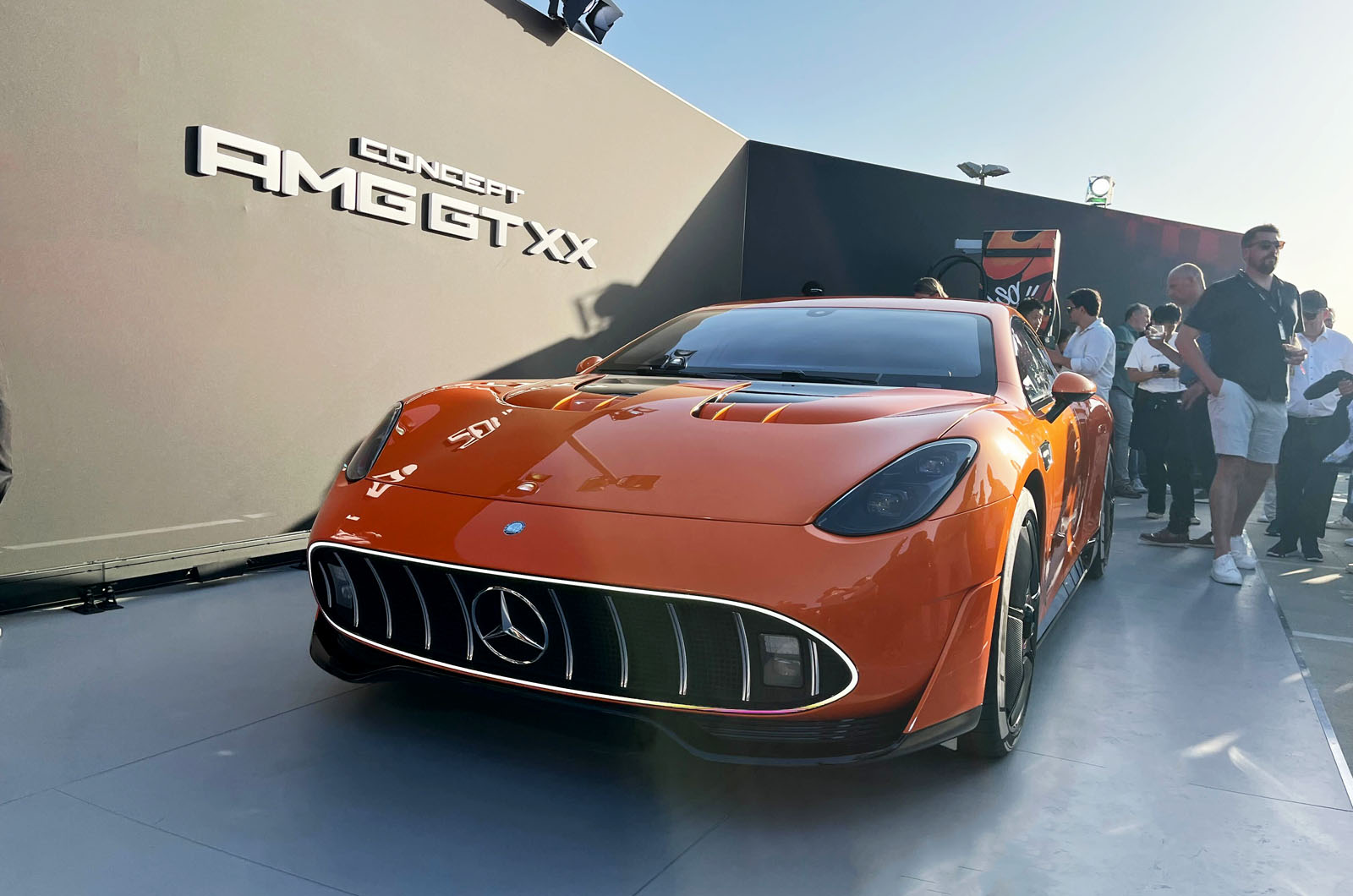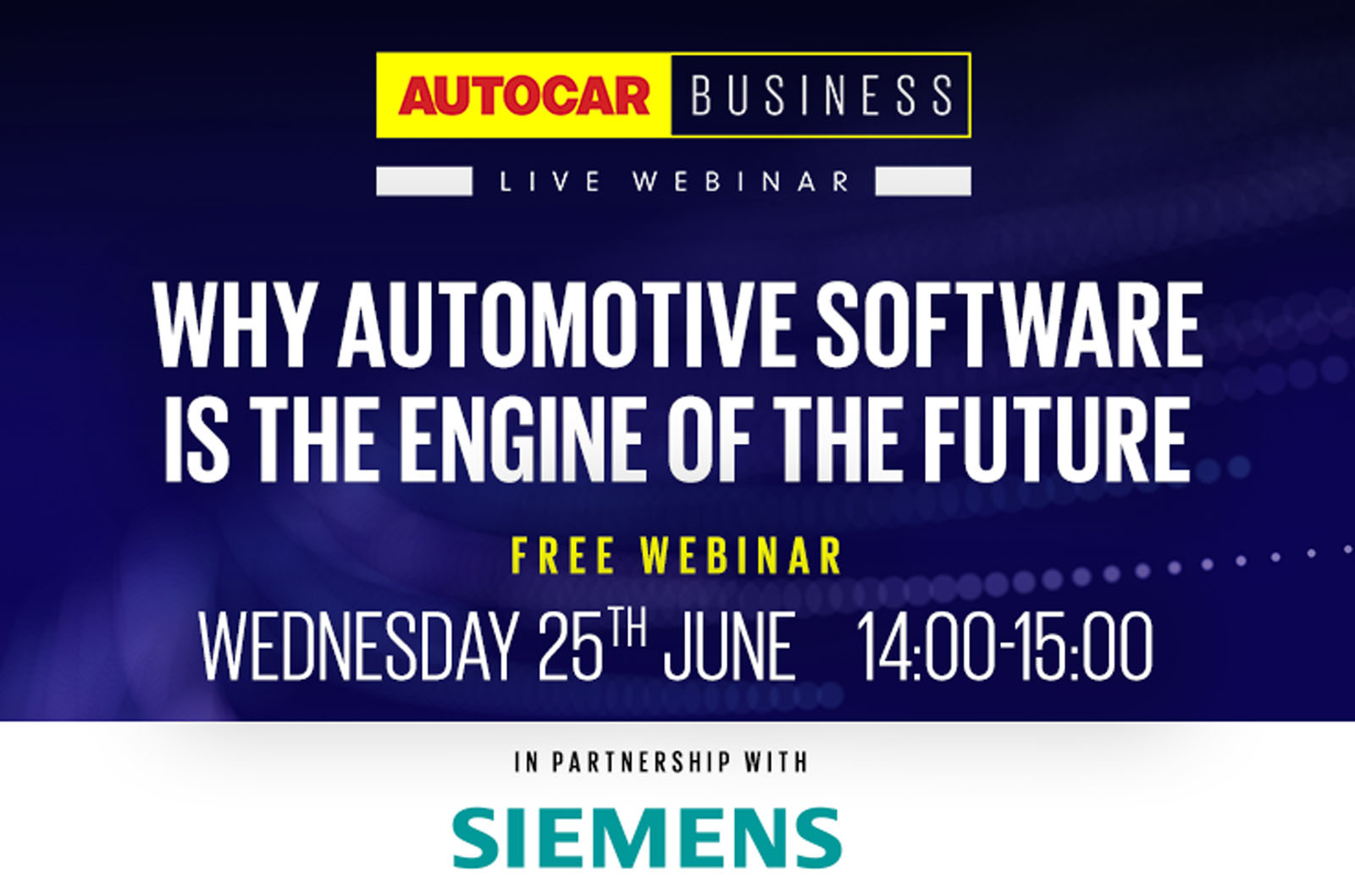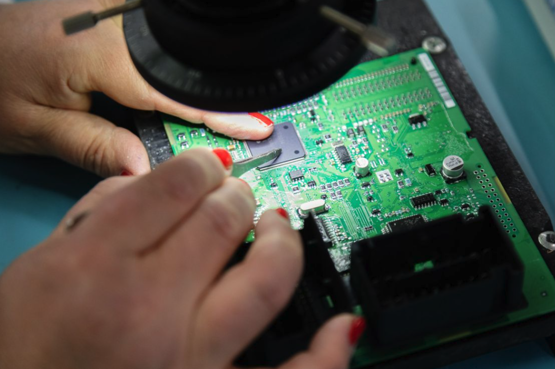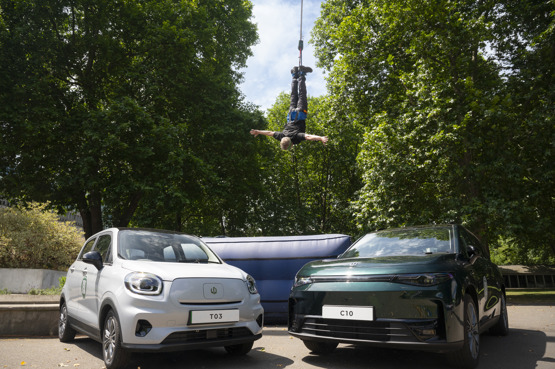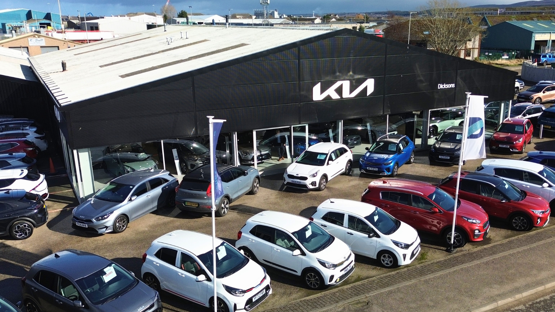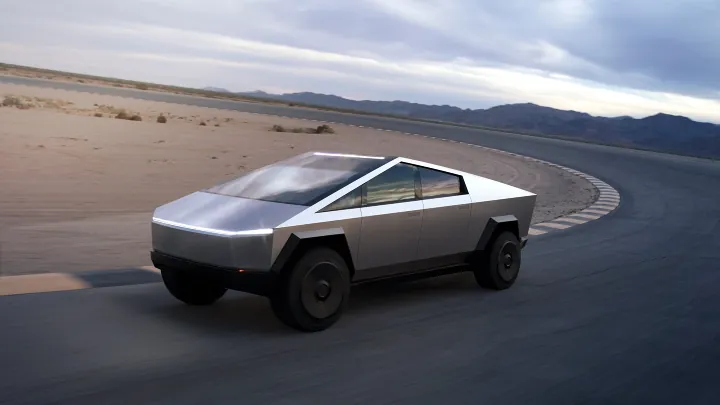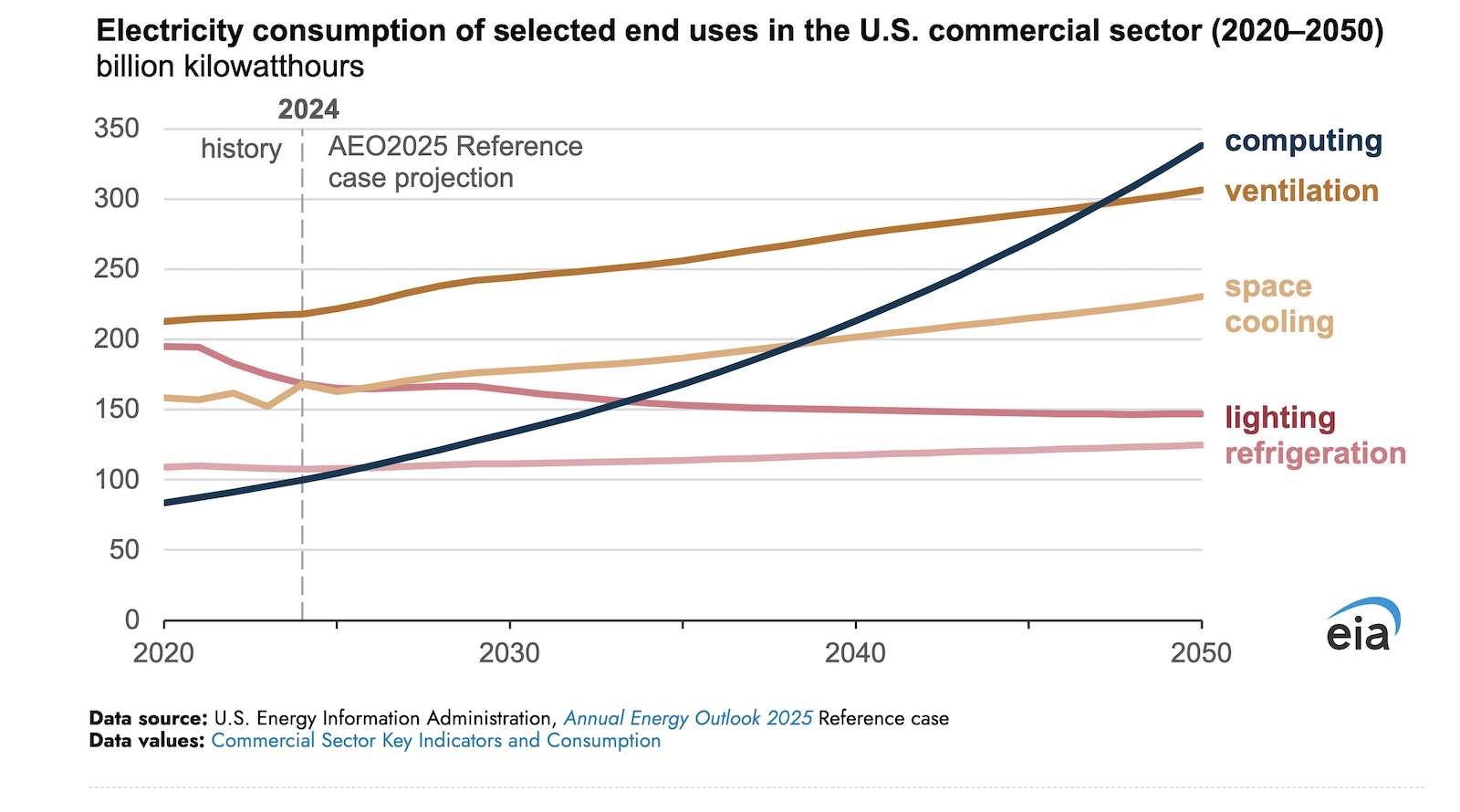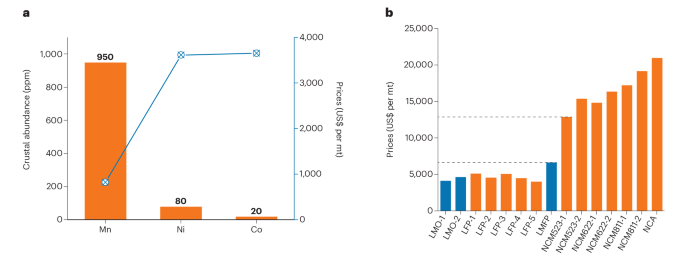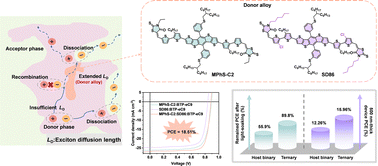Opinion: Software-Defined Vehicles Will Be Awful
While the automotive industry is gearing up to pivot toward “software-defined vehicles,” there hasn’t been a surplus of clear explanations on what exactly that will entail. Oversimplified, it just means that manufacturers want to start building automobiles where all functions are controlled via software, rather than being determined exclusively upon the mechanical hardware they came with — and I have a sinking feeling they are going to be just awful.


While the automotive industry is gearing up to pivot toward “software-defined vehicles,” there hasn’t been a surplus of clear explanations on what exactly that will entail. Oversimplified, it just means that manufacturers want to start building automobiles where all functions are controlled via software, rather than being determined exclusively upon the mechanical hardware they came with — and I have a sinking feeling they are going to be just awful.
Based upon how our readers responded to our previous article where a former engineer explained how he believed automakers had intentionally advanced planned obsolescence, modern industry trends do not seem to be broadly appreciated. Software-defined vehicles are effectively the final frontier of those trends and come with endless opportunities to gatekeep repairs, commercialize infotainment systems and upsell features.
Realistically speaking, we already have software-defined automobiles on the market. Ford has even said that the term is "just jargon" used by the industry " to define modern, tech-forward vehicles that are increasingly differentiated by software." Then, the brand noted that the tech would be used to "deliver better driving and ownership experiences." But I'm relatively confident that the term "ownership experience" is also jargon for something that doesn't constitute traditional ownership.
Basically, the automotive sector wants to continue evolving the overarching idea, similar to how they advanced the vague premise of "mobility" over the last ten years with electrification and touchscreens. However, before we start bashing the concept, we should examine some of the upsides of software-defined automobiles (SVDs).
For manufacturers, SVDs mean for more scalable and consistent software management between models. It is likewise assumed to maximize the potential of connectivity features, meaning improved integration with artificial intelligence, advanced driving systems, and remote customization. Automakers will also be able to sell more features (potentially as subscriptions) that can be downloaded as over-the-air (OTA) updates and presumably harvest even more data.
For consumers, software-defined vehicles mean more ways to customize interior screens to their tastes and perhaps unlock mechanical features that have already been installed to the vehicle. For those who actually enjoy using their phone to control the car, enhanced mobile-device pairing seems likely as well. But the benefits for drivers really do seem to stop there, barring some major advancements in terms of self-driving functionality.

Over-the-air updates aren’t exactly new and have enjoyed a mixed reception from drivers thus far. Owners have complained that OTA on modern vehicles can result in unplanned downtime, something that’s particularly undesirable when you’re running late or there’s an emergency. There are likewise concerns that SVDs will further reduce user serviceability and dilute the very notion of ownership. As vehicles become more reliant on manufacturer-controlled software, many are concerned that this will be used to gatekeep who is allowed to make repairs and aftermarket modifications.
Further integrating connectivity simultaneously opens up those vehicles to fresh vulnerabilities. Automakers now talk ad nauseam about how to guarantee cyber security in modern vehicles. But they’re the ones that opened up the door by connecting them to the internet in the first place. The following may sound like science fiction. But there is a real potential for hackers to remotely hold SVDs hostage until the owner pays up. Meanwhile, the Central Intelligence Agency (CIA) has had a program designed to take control of connected cars — so they could be used to surveil or assassinate targets — dating back to 2014.
Considering how frequently automakers are willing to sell the private data of their customers today, it may be fair to claim that the entire premise of the industry protecting drivers from vulnerabilities is already laughable. The amount of data connected cars could harvest from drivers already bordered on mind boggling ten years ago and has only ramped up in the interim period.
But this is exactly what industry leadership has been pushing for. Automotive News recently published an article outlining how automakers are working with suppliers to quickly prepare for the industry’s shift toward software-defined vehicles (see Honda's take below).

Despite this, I haven’t exactly heard the public clamoring for them. Anecdotally, most drivers I’ve encountered now seem to have fonder memories of simpler cars from decades past. The automobile has followed in the footsteps of other consumer goods by attempting to leverage tech for tech sake. But this has led to a growing and disgruntled demographic that would be perfectly happy to see everything but blind-spot monitoring and navigation done away with.
Buying a washing machine or refrigerator that’s permanently connected to the internet was a short-lived novelty that presumably garnered some sales. But the additional complexity has not made them better products and there is a large subset of consumers that now believe older, simpler machines are less more robust and less annoying — thereby making them the better value.
It could be argued that the same things are happening with cars since they’ve been paired with the internet. Automakers talk obsessively about data security when the safest thing for them to do would have been never to integrate all of the vehicle’s systems and subsequently attach them to a modem. The industry has created vectors for vulnerabilities in order to harvest customer data for profit and offer new features via over-the-air updates (OTAs). Now they ironically need to leverage those same systems to address the resulting security issues.
These updates are likewise supposed to help contend with defects. But (ignoring problems stemming from bad code) they often seem to be used to help manufacturers buy time before they have to address mechanical issues via a formal recall. Meanwhile, fresh comparisons have been made to the video game industry’s push toward downloadable games.
Prior to the modern internet, video games came on physical cartridges or discs and needed to be complete and bug free if they were to have any hope of selling. Now, developers will frequently release unfinished games, downloaded online, in order to meet arbitrary deadlines and end up spending the next several years patching them via updates. Originally pitched as a way to reduce production costs, prices have only come up as physical media declined.
While perhaps unrelated, the gaming industry has seen rolling layoffs and declining numbers of what would be considered traditional customers. Some people are understandably concerned that a similar fate will befall the automotive industry as OTAs become normalized. Others have suggested that it’s already taking place.

However, the best comparison has to be between automobiles and smartphones. Tech companies are clearly the businesses that car manufacturers most want to emulate and we’ve seen how that’s influenced modern vehicles to a large degree. The public has witnessed all manner of features be removed and then re-added to mobile devices over the years and this has started to spill over into the automotive realm. Numerous car companies have removed buttons and knobs, only to bring them back as consumers expressed their collective dismay.
The difference is that the frustrating screen that lives in our pocket only costs several hundred dollars, whereas the frustrating screen with wheels that lives in our driveway costs tens of thousands.
Considering that we’ve seen updates that intentionally slow down smartphones while degrading battery life — on batteries you can no longer replace yourself, no less — doesn’t it seem plausible that automakers might engage in similar tactics? They’re already alleged to be designing mechanical components to fail early in an effort to force people to buy more vehicles. Why would they stop there if they believe there’s money to be made?
Tesla has attempted to prevent features ordered from the factory from remaining enabled once they land on the secondhand market and other brands look to be following suit. Are we seriously supposed to accept a future where the best way to make the most of your vehicle, and retain any semblance of independent ownership, is to digitally jailbreak them like other connected devices? I understand that my prognosis on the topic is admittedly quite bleak. But it’s honestly hard to see a sliver lining for anyone but the companies pushing it because they believe it’ll be immensely profitable.
None of the above is likely to matter to people who mindlessly replace their vehicle every few years. Those most affected will be automotive enthusiasts, independent (or DIY) mechanics, and the kind of people that buy secondhand vehicles in order to save money. However, the inherent problems will gradually become more apparent as the years roll on — eventually making it so those formerly apathetic parties will have to care.
It's my opinion that much of the above undermines the notion of what we traditionally think of as an automobile and ignores many of the fundamental aspects of how to build a good one. Then again, I would be overjoyed to be wrong on everything. Some of the above is partially speculative and there is still room for the industry to pivot in a less-dystopian direction. I’m curious to hear everyone’s opinion on the best path forward and whether software-defined vehicles will really be as bad as some of us are assuming.

[Images: Ford; Honda; General Motors; Stellantis]
Become a TTAC insider. Get the latest news, features, TTAC takes, and everything else that gets to the truth about cars first by subscribing to our newsletter.











